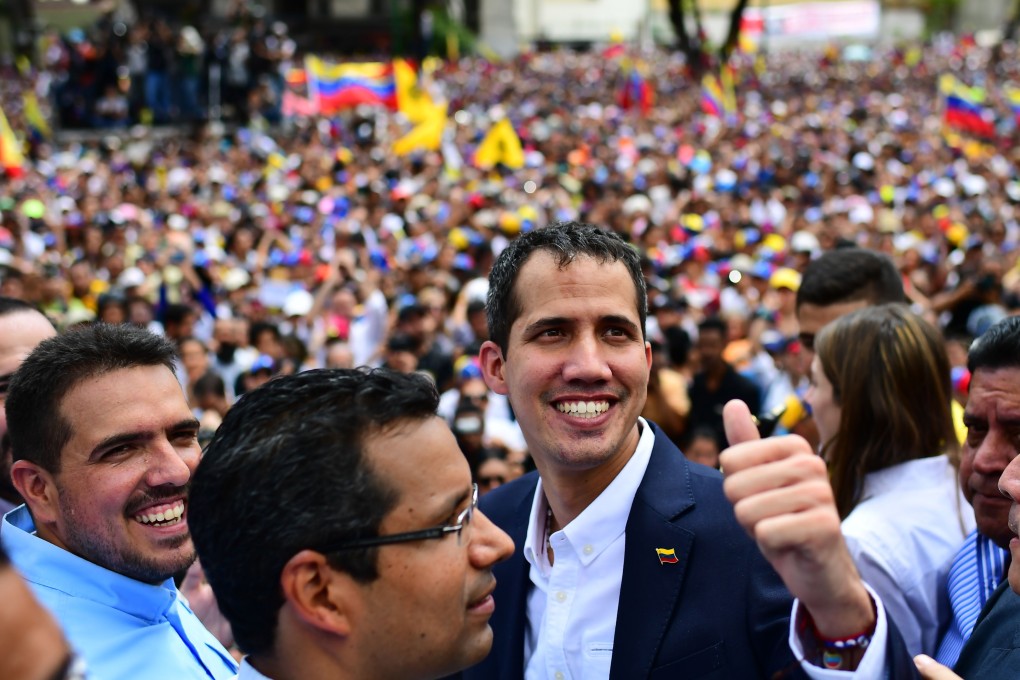Would-be president Juan Guaido risks arrest and returns to Venezuela, greeted by supporters and foreign diplomats
- Guaido claimed he might be arrested on return from a tour of South America, but he had no problem entering through the country’s main airport
- Diplomats from the US, Europe and Latin America gathered at the airport to ensure he was not harmed

Opposition leader Juan Guaido returned to Venezuela on Monday after a 10-day absence, injecting fresh energy into the US-backed campaign to push out authoritarian President Nicolas Maduro.
Guaido arrived shortly after noon to wild cheers from supporters gathered at Caracas’ Maiquetia Simon Bolivar International Airport. “Guaido! Guaido” they screamed. “Yes we can!”
“We are here, Venezuela,” a beaming Guaido declared, as he was encircled by television cameras. “We are strong. We are moving forward!”
Guaido supporters in Venezuela and abroad had feared he might be arrested on arrival. The opposition leader, who has been recognised as interim president by the United States and more than 50 other countries, had defied a court order when he crossed the border on February 22 to lead an effort to bring truckloads of humanitarian aid into the country. He has since been travelling to meet with Latin American leaders.
Senior diplomats from the United States, Europe and Latin America had gathered at the airport Monday to ensure Guaido was not harmed. Officials including Britain’s foreign minister, Jeremy Hunt, and John Bolton, the US national security adviser, had warned that Maduro would face severe consequences if he detained Guaido.
“Any threats or acts against his safe return will be met with a strong and significant response from the United States and the international community,” Bolton tweeted Sunday night.